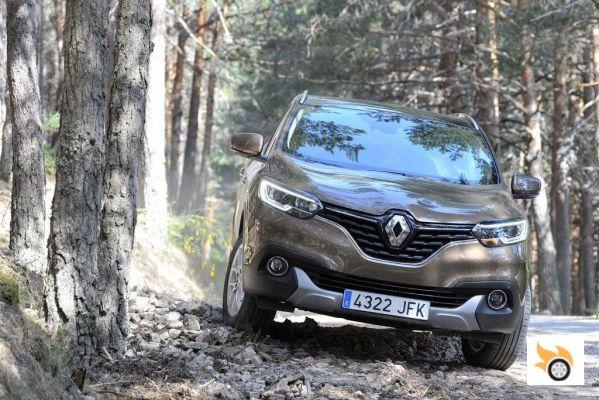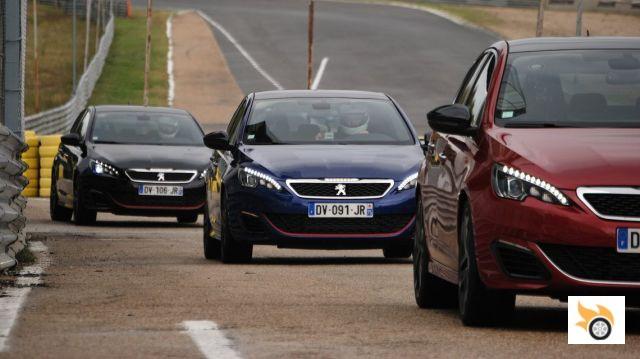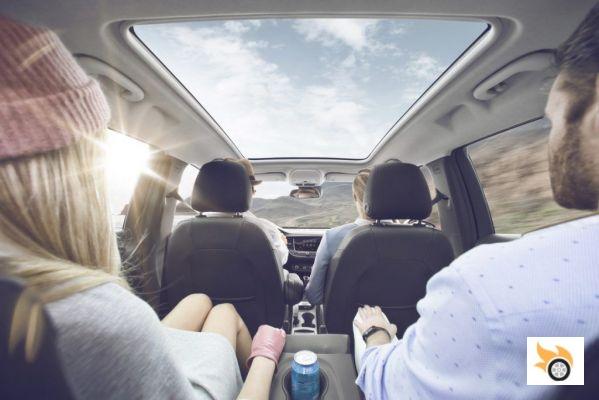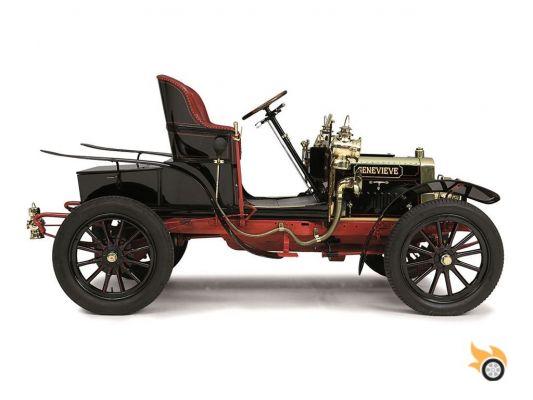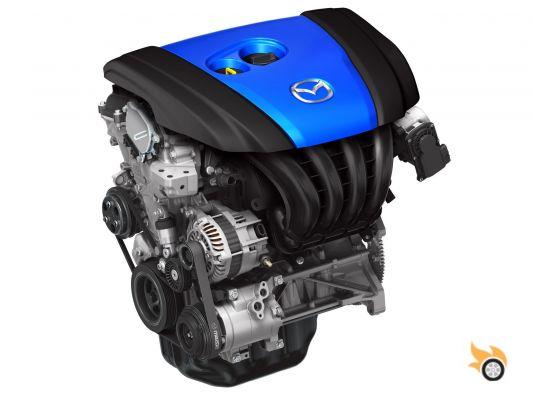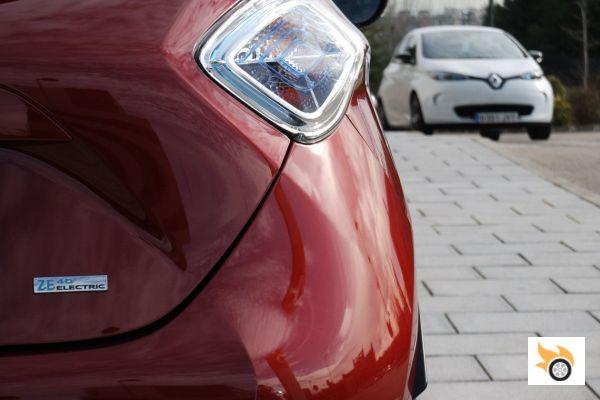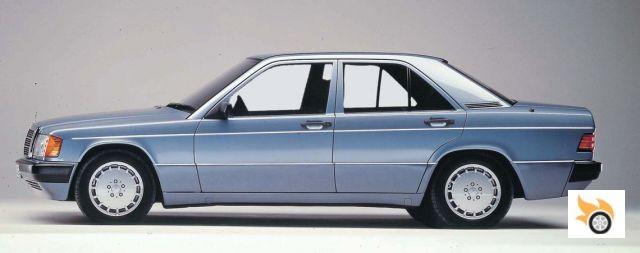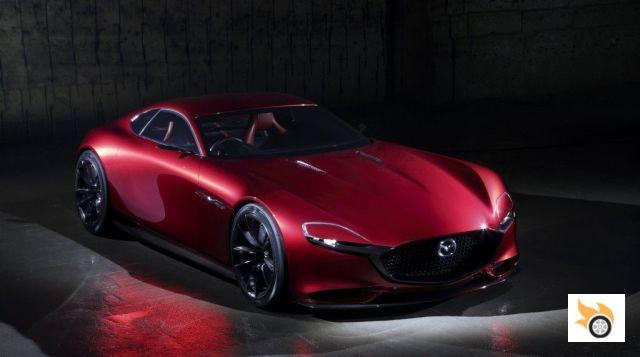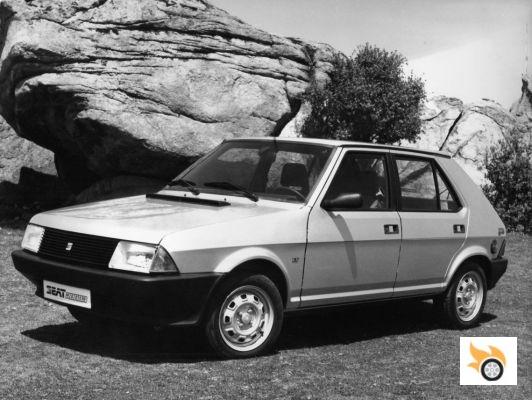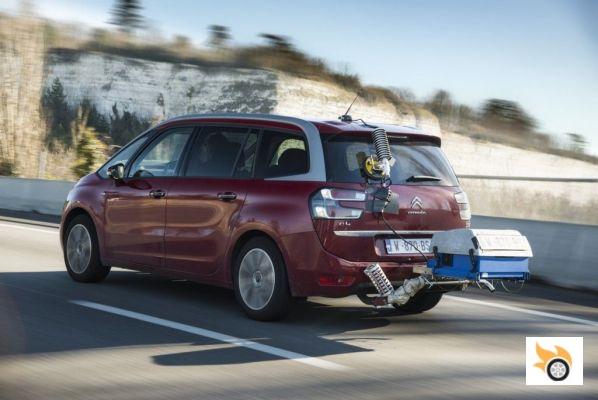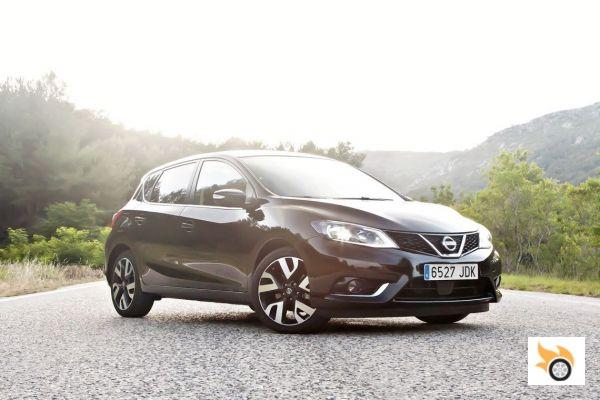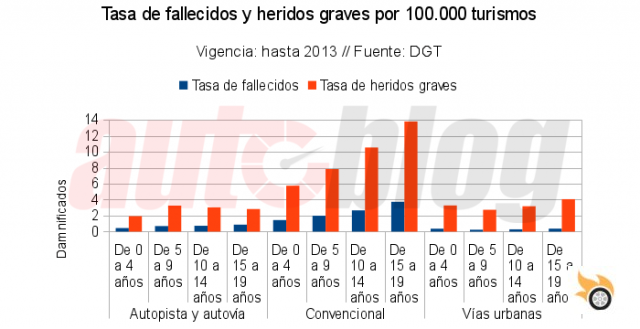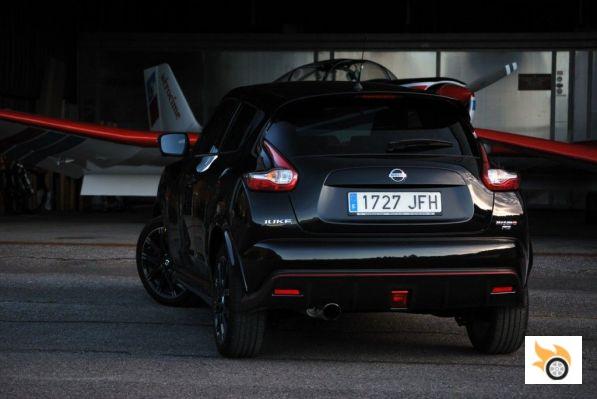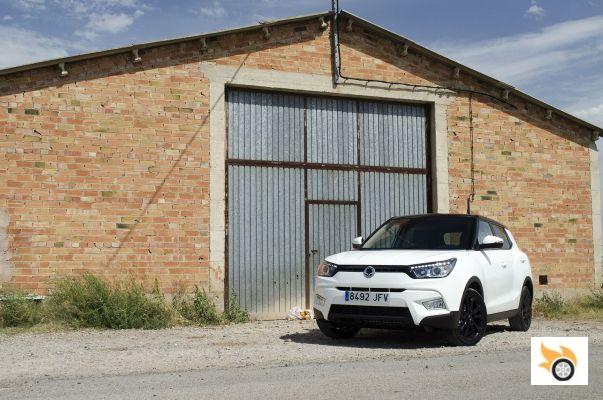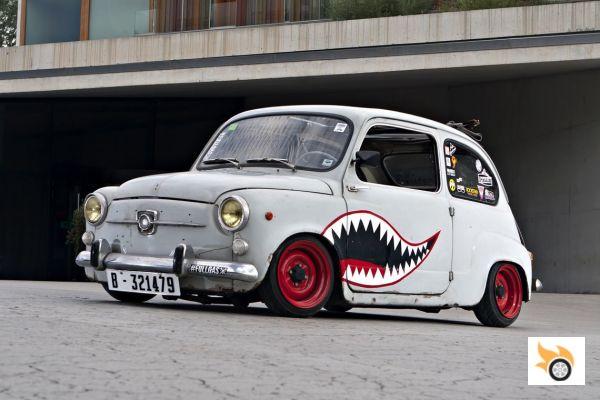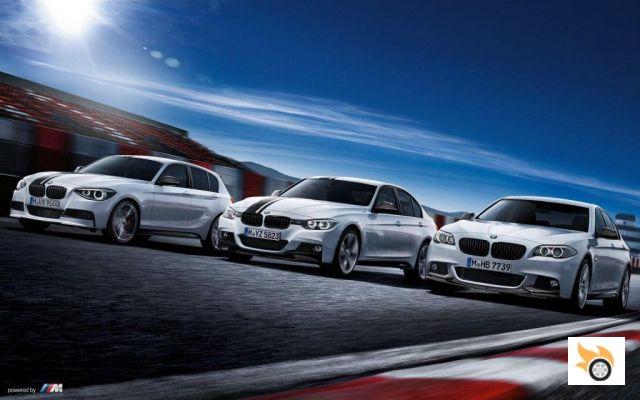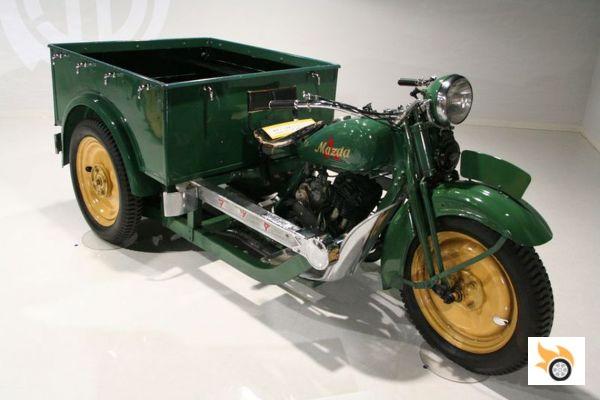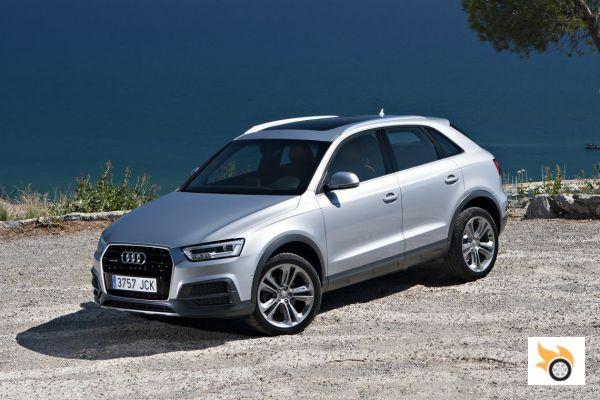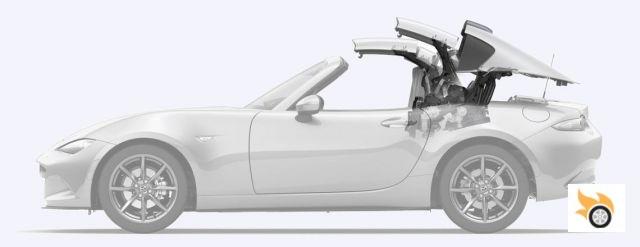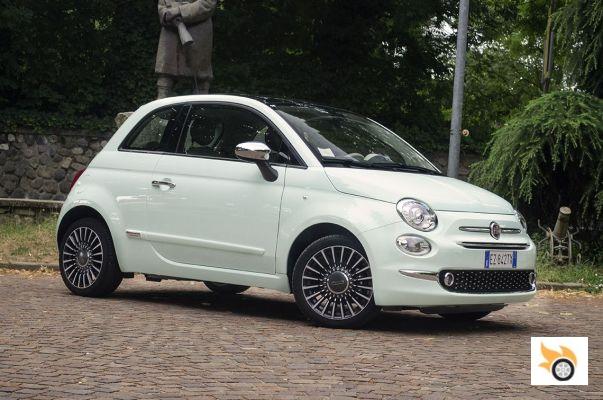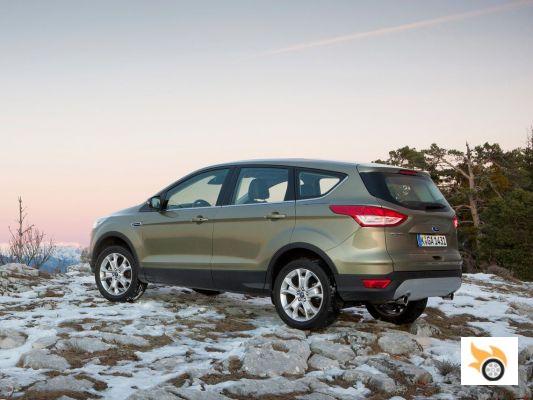
I'm not referring to the purchase price, but to all that is lost with respect to other cars in terms of safety, consumption, comfort, economy of use... Well, maybe there are those who buy an SUV "in case I ever need to go on a bad road", but that would be like buying a caravan as the only car to "take a nap" if one day we get sleepy going on a trip.
Seriously, I have nothing against SUVs as vehicles as long as they are bought and used for what they are designed for, and I think it's a great concept to combine acceptable comfort and on-road performance with some ability to drive on bad roads. And they certainly seem to me to be the best choice for anyone who often rides on bad roads.
Let's face it, the vast majority of SUV buyers are never going to take them off the road, and even less if they have equipped them with the "cool" big wheels and low profile tires... and it is this trend of buying SUVs for their exclusive use on asphalt that I question in this article.
Let's start by clarifying what a good SUV should be like.
For an SUV to be a "real" SUV, it must have a higher ground clearance than a normal car and more favourable angles of attack. The whole car, starting with the monocoque and suspensions, need extra reinforcements to withstand the vibrations and twists caused by bad roads, and of course, the wheels must have enough ball to adapt to the broken and stony ground. 4×4? I wouldn't go so far as to say that an SUV should imperatively be 4×4, because it all depends on how tough your life is going to be.
And that's all bad?
Well, you have to take into account that a higher centre of gravity doesn't help to get a good behaviour, and that no matter how good it is, it will never be as agile and safe as a car of a similar category, and that's because physics doesn't understand fashions. A higher centre of gravity means that when cornering, more weight is unloaded from the inside wheels, which will end up on the long-suffering outside wheels. For this reason, and in order to try to limit these sways, and to limit body lean in curves, SUVs must mount firmer suspensions, and therefore, uncomfortable.
On the other hand, the superior structural robustness will raise the weight, increasing consumption, accelerating the wear of tires and brakes, clutch and transmission that will suffer more?
"OK, but they're safer."
Safer?
As I said above, the higher weight and the higher centre of gravity condition the dynamics of the car and affect active safety (the one that makes the difference between having an accident or avoiding it). That's why SUVs generally have worse braking distances, have a higher risk of rollover, are less agile when performing evasive maneuvers ... That is: the mathematical probability of having an accident is higher, and well thought, the ideal would be not having to check how effective is the passive safety of our car ...
True, on board an SUV, the subjective feeling of safety is greater, and that can be comforting, but it can also turn against us, because that false sense of security could lead us to take more risks than with a car "subjectively less safe", and that without counting that a higher driving position reduces the perception of speed, which can lead the driver to drive faster than he thinks, and / or reduce attention at the wheel.
And if we think about passive safety (that which in case of an accident minimizes its consequences), SUVs do not usually do better in crash tests than cars of similar category, and the fact is that the greater weight also plays against passive safety... How? Well, yes, the weight of the car is what "pushes" its monocoque against the obstacle, causing the car to deform. That is, the more weight, the more you have to reinforce the monocoque, which will add weight ... Do not you believe it? Well, look at how intact the very light monocoque of a light F1 car is after an accident...
Ok, I admit that in case of a collision with another vehicle, the bigger and heavier one usually has the upper hand, but buying a heavy car to "protect ourselves", knowing that this means a higher risk of causing damage to the occupants of cars of more reasonable weight, seems to me a morally debatable argument at least.
What if I buy a Hummer H1 to be able to calmly crash into any stroller that crosses my path? Don't people travel in strollers?
And let's not forget that SUVs pose greater risks to pedestrians if they get hit, especially if they are children. I think it's worth remembering that we and our family members are pedestrians too, pedestrians who often suffer the consequences of accidents for which they are not to blame... In any case, I invite you to take a look at the reports of EuroNCAP, IIHS, and other studies by independent bodies.
"But they're cooler".
Despite being a fan of design, I think that aesthetics should be the least important parameter when deciding on a car (or type of car), because let's not forget, a car is a machine that serves to transport us from A to B safely, fast enough, with a comfortable and cozy interior, and all this, at a reasonable economic cost. True, the external image is important, but in my opinion, it should be applied as a low factor when considering the candidates to occupy our garage, because after all, a car is a very expensive object, and we will enjoy it "from the inside".
Obviously, we are all influenced by the image that others may have of us, but maybe our neighbours don't notice our car as much as we think, and going a bit further, maybe we shouldn't worry so much about what the rest of humanity may think of us?
I mean, buying an SUV because "I don't like family cars", because "minivans look like fregonetas", or because a compact "everybody has one", don't seem like serious arguments to me. But then again, there are very few SUVs with a really interesting design or style, in fact, right now I can't think of any that I find really beautiful.
"Modern cities are full of obstacles, better in an SUV".
Totally true, some Spanish cities are turning into a kind of car rinky-dink for cars (that would be the subject of another article), but I drive a low roadster every day, and I don't usually have problems with friction on overpasses. Well, I admit that the elevated position of an SUV improves forward visibility, but on the other hand, it worsens the visibility of the cars following us... and besides, its high waistline tends to hide bollards or lower cars; that is, what we gain on one side, we lose on the other.
True, the latter is unimportant if we don't give a damn if we're tearing lollipops off the sidewalks, or leaving souvenirs on the bodywork of the cars parked behind us...
Comparisons are odious, but sometimes they're necessary.
If SUVs didn't exist, most buyers would choose a car, a family car or a minivan; to a lesser extent those customers would go for a traditional off-roader (as it used to happen before). There are SUVs of different categories, but I have chosen to compare cars of similar category, choosing the compacts for being one of the most sold, and for having SUVs, compact cars, family cars and minivans that share platform and engines.
And because data is important, at the end of the article I have added official data for Ford and Volkswagen models. I have chosen these brands because they offer the same engine in SUV 4×2, compact, family and minivan models, all of them of similar category, and the SUVs are 4×2 not to penalize even more their consumption and weight.
SUV or compact car?
True, the interior space of an SUV is usually a little - just a little - more comfortable than the equivalent compact car, but if we are not particularly tall and we have enough with a reasonable boot, a compact car should be more than enough. The compact is more comfortable, more agile, and brakes better, that is, it has better active safety.
We park it more comfortably, it uses less fuel, has a lower maintenance cost (wheels, brakes, transmission), and if that wasn't enough, it's cheaper to buy, costs less to insure, and in some cases, pays less road tax... On the other hand, the current compacts have reached a level of refinement, comfort, safety and coherence, which I think is the most reasonable option for the vast majority of drivers.
SUV or estate?
I often hear people say "I just don't like family cars" to justify the purchase of an SUV instead of a family car... and honestly, I find it very strange, because after all, the silhouette of an SUV is still that of a "taller" family car. Curious, but the rejection of many to family cars in Spain is worthy of study, because in most civilized countries have a reasonable success.
It's true that, a few years ago, the design of many of them looked like a "fix", but nowadays there are family cars with a really elaborate design. But let's get down to practicality, and aesthetics aside, family cars have spacious cabins and boot sizes that are much larger and more usable than SUVs, so they are much more suitable for those who have to carry all the junk that nowadays comes with the kids, or for outdoor sports enthusiasts.
Besides, if you have to lift bikes or skis onto the roof rack of an SUV, and you're not as tall as a professional basketball player, you'll probably need a step ladder... And as far as performance, comfort, or economics are concerned, family cars are practically equivalent to the compacts from which they derive, so we can apply everything said above about them.
SUV or MPV?
It's funny how after the MPV boom of a few years ago, the segment has been losing sales at the same rate that SUVs have been gaining followers. It seems as if potential customers who used to choose minivans (and to a lesser extent, family cars) have switched to SUVs, and the only halfway reasonable explanation I can think of is their image.
MPVs have a, let's say, "family" look, an unaggressive, almost friendly image. On the other hand, SUVs suggest dynamism, aggressiveness, "sportiness" some would say. It seems as if the image we have of the typical driver of a minivan is that of a grey and conformist family man (or woman), and on the other hand, the driver of an SUV is someone more independent, dynamic and with charisma, one of those people who are cool and envied... That's what it has to be!
Yes, it has to be that, because in reality, MPVs also have that elevated driving position that some argue is a big advantage of SUVs, but they weigh less, spend less, have a better handling (lower centre of gravity), which makes them safer, are incredibly comfortable, have a bigger boot, three adults travel much more comfortably in the back seat...
Let's compare data sheets...
C-segment Ford diesel
| Focus 1.5 TDCi (120 PS) | Focus SW 1.5 TDCi (120 PS) | C-MAX 1.5 TDCi (120 PS) | Kuga 1.5 TDCi (120 PS) | |
| Acceleration 0-100 km/h | 10,5 s | 10,7 s | 11,3 s | 12,5 s |
| Fuel consumption | 3.8 l/100 km | 3.8 l/100 km | 4.2 l/100 km | 4.6 l/100 km |
| Length | 4,358 mm | 4,556 mm | 4,379 mm | 4,524 mm |
| Luggage compartment | 363 l | 490 l | 471 l | 456 l |
C-segment Volkswagen petrol
| Golf 1.4 TSI (125 hp) | Golf Variant 1.4 TSI (125 hp) | Golf Sportsvan 1.4 TSI (125 hp) | Tiguan 1.4 TSI (125 PS) | |
| Acceleration 0-100 km/h | 9,1 s | 9,5 s | 9,9 s | 10,5 s |
| Fuel consumption | 5.2 l/100 km | 5.3 l/100 km | 5.4 l/100 km | 6 l/100 km |
| Length | 4,255 mm | 4,562 mm | 4,338 mm | 4,486 mm |
| Luggage compartment | 380 l | 605 l | 590 l | 520 l |
Conclusion: they sell because they are fashionable
I insist that I have nothing against SUVs, as I have nothing against the "real" 4×4, but I do not understand that the vast majority of customers buy them without having the slightest intention of rolling off the asphalt, and more taking into account that a car or minivan perfectly solve their needs, at lower cost, and with greater active safety. And the only explanation for this phenomenon is that simply now SUVs are fashionable, as once were fashionable shoulder pads, platform shoes, white socks, go stepping on your pants, wear boots in summer, high neck sweaters and sleeveless ....
Maybe one day the SUV-fashion will pass, but in the meantime, I hear more and more often conversations in which people recommend each other the latest SUV model, completely forgetting about the rest of the cars, and I'm almost not surprised that people look at me like a weirdo when I recommend a car, family car or minivan... Could it be that I'm really a weirdo?




